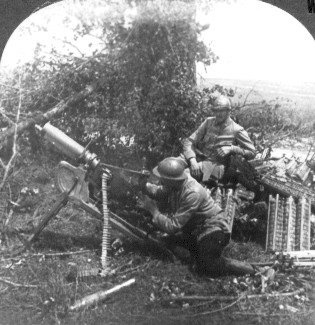Good/Bad: People/Machines
Today, we try to construct an aphorism. The University of Houston's College of Engineering presents this series about the machines that make our civilization run, and the people whose ingenuity created them.
An aphorism is a concise statement of a principle. It's just a bit more direct than an adage or a motto. The most famous aphorism of all is Hippocrates' statement about the art of medicine. He said, "Life is short, the art is long, opportunity fleeting, experience delusive, judgment difficult."
I want to try an aphorism on you. Years ago, after I gave a talk on technology, someone asked, "Do you mean good people make good machines and bad people make bad machines?" I didn't want to consent to such a simplistic statement so I chewed the air for a moment. Finally, I was shocked to hear myself saying, "Why, yes. That's right. Good people do make good machines and bad people do make bad machines."
I'd been handed an aphorism that was both dangerous and compelling in its simplicity. So let's see how it holds up:
First of all, I doubt I've ever met a wholly good or bad person. But I've certainly watched people act on both good and bad intentions. Second, it's very clear that machines reflect us -- that we are what we make. That's why machines provide the metaphors we use all the time to make sense of things.
We tell each other that a tornado descends like a hammer, an efficient person functions like a Swiss watch, a friend is an open book, a fine machine is the Cadillac of such devices. We look for the needle in the haystack. We stay out of the gears of a bad situation. A good basketball team works with clock-like precision. Our metaphors are technological.
Our machines turn into metaphors because we build ourselves into them. Machines that survive are the ones we've invested with the best of ourselves when we make them.
In 1883 a friend of Hiram Maxim said to him, "If you want to make your fortune, invent something to help these fool Europeans kill each other more quickly!" By 1885 the brilliant and inventive Maxim had created the first single-barrel machine gun. It fired 666 rounds a minute and it changed warfare. After the Russo- Japanese War, Maxim proudly said, "more than half the Japanese killed in the late war were killed with the little Maxim Gun."
So was this a good machine or a bad one? Was Maxim a good man or bad? It all depends on how you hold each up to the light. Either way, the man and the machine mirrored one another perfectly.
So my aphorism (maybe I should call it a maxim) is circular. No matter how we define good and bad, it has to come out true because what we make is what we are. That's why good people really do make good machines and bad people make bad machines. The weakness in all this is, it says nothing about the lingering, age-old, problem of telling good from bad. Nevertheless, it's a fact we're well advised to remember when we make anything.
I'm John Lienhard, at the University of Houston, where we're interested in the way inventive minds work.
(Theme music)
For more on the Maxim example see Episode 694 and/or the following references:
Maxim, H., My Life. London: Methuen & Co., Ltd., 1915.
Hogg, I., The Weapons that Changed the World. New York: Arbor House, 1986, pp. 22-25.

A typical WW-I machine gun, the immediate descendent of
the Maxim gun and the cause of millions of WW-I deaths.
Image provided by Margaret Culbertson